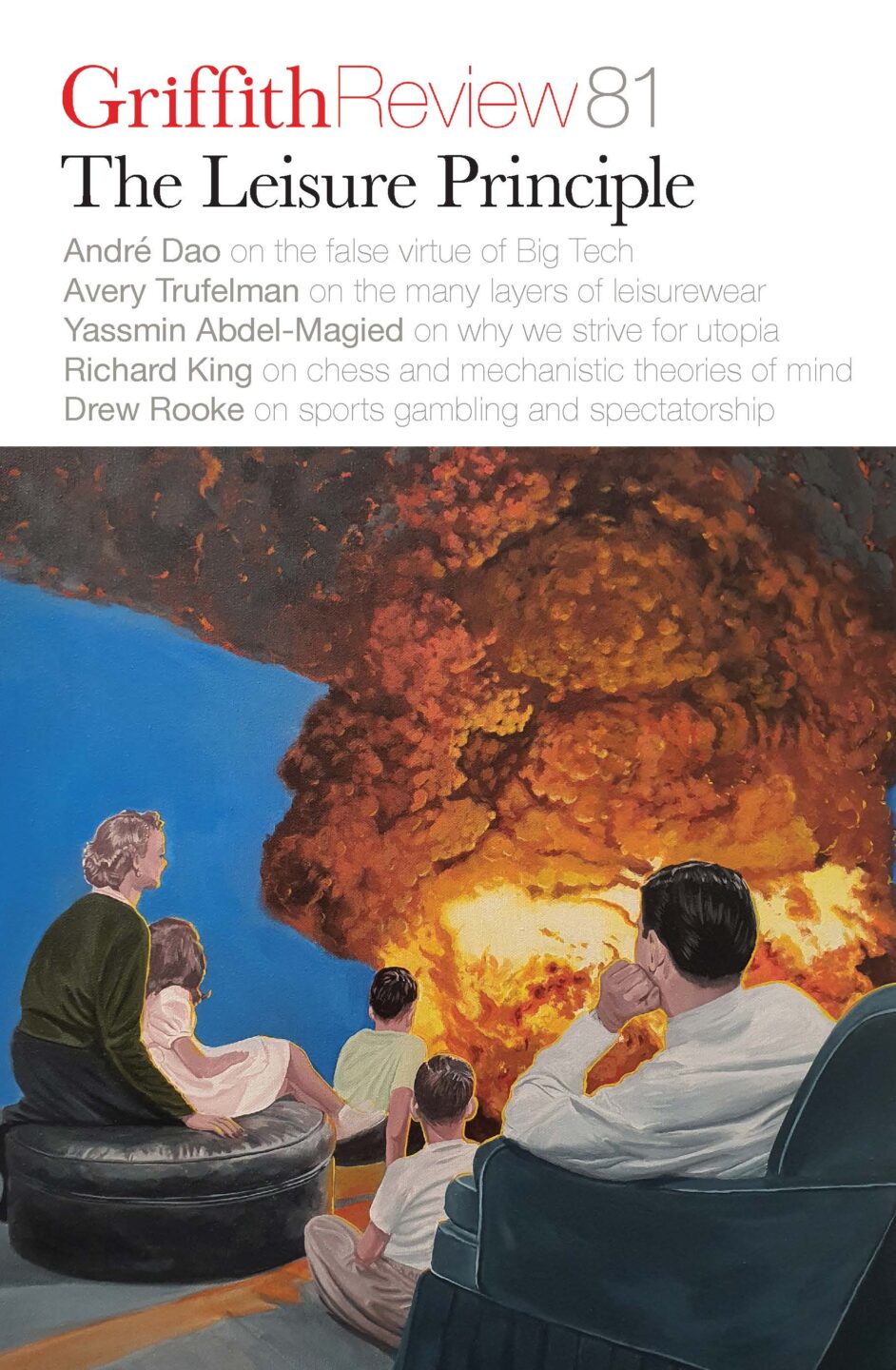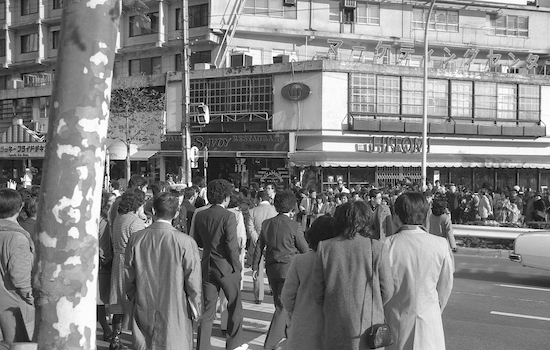Featured in

- Published 20230801
- ISBN: 978-1-922212-86-3
- Extent: 196pp
- Paperback (234 x 153mm), eBook


Already a subscriber? Sign in here
If you are an educator or student wishing to access content for study purposes please contact us at griffithreview@griffith.edu.au
Share article
About the author

Jonathan O’Brien
Jonathan O’Brien is a writer, software developer and housing advocate. He was the recipient of a Brisbane Lord Mayor’s Young and Emerging Artists Fellowship...
More from this edition

The rise and decline of the shopping mall
FictionPerhaps it is instructive to consider how archaeologists of the future may conceive malls. How might they seem, these empty labyrinths – like rituals that had to be endured in order to receive goods and services? As great monoliths, colosseums constructed for our entertainment? As places of worship? Or perhaps malls will seem more like pyramids do to us: mysteries to be unravelled when the tracks of global trade and communication have faded...

All work and some play
In ConversationI’m often hearing about odd jobs that musicians or performers had and how it’s tied to their identity. You read about Beat writers like Jack Kerouac and Neal Cassady, who really identified with blue-collar people and railroad workers. After Kerouac got infamous, or famous, he went off to be by himself in a cabin in the forest as a fire lookout. So he went into a very solitary existence, and I like that kind of thing...

‘A world we must defend’
Non-fictionSchools across Australia banned Pokémon in an attempt to regain control, but this only caused the franchise mania to intensify. Now Pokémon wasn’t just fun – it was also illegal, which meant it was dangerous, which meant trading cards on campus made you a risk-taker, which meant you were seen as fearless, which meant that you were dangerous.